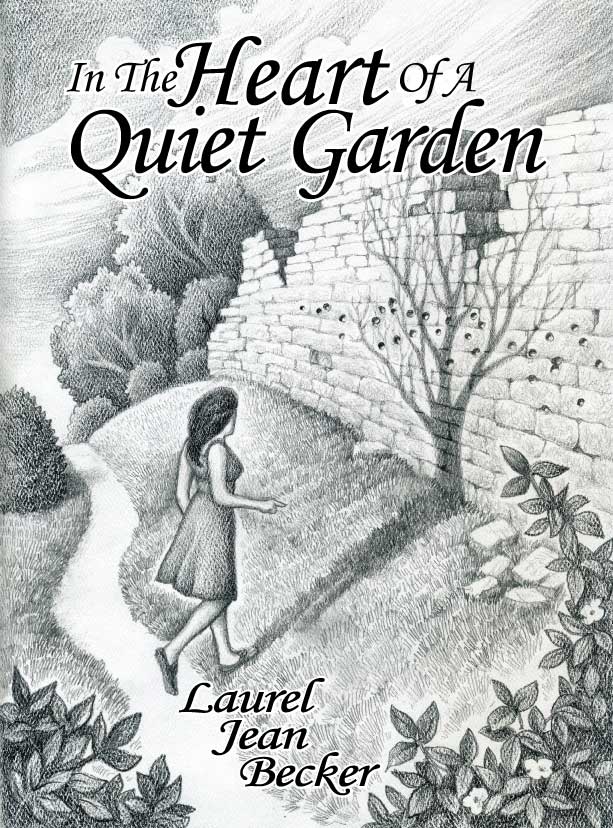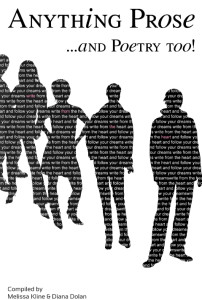Oh no! I thought as I opened our curtain to a world of white. Unlike in other parts of the country, April snow is not unusual in Colorado. But my husband and I had just returned from Texas, and I was not anxious to slop through the wet snow to refill my fridge.
As I watched the dark sky brighten, I felt this particular morning was somehow unusual. I wasn’t sure why. Perhaps it was the pristine scene of the still snow not yet disturbed by humans or cars. Then the leafless Mountain Ash outside my window caught my eye. Its branches extended from the strong trunk to smaller branches, no more than several inches thick, and trailed off to twigs only a quarter inch thick. Each was holding at least its width in heavy, wet spring snow.
I called my husband to the window. “Why is something so fragile able to uphold such heavy snow?” I asked. “Because,” he said using his ability to see things from an analytical perspective, “there is no wind.” He was right! I knew instantly what had initially caught my attention was the stillness.
I began to think about the slender twigs at the branches’ ends and the burden they held. Like the twigs on Mountain Ash, there are many fragile people among us: people who have little strength or are physically or emotionally thin. Yet, they still contain the life that will spring forth when their winter burden is over and the first Crocus of spring pops through the snow. Hopefully, like the Mountain Ash, the fragile in our world will leaf out and become stronger as seasons pass and their branches thicken and reach upward.
The survival of we fragile human beings depends on many things, two of which are our connections to others who can help us survive and the absence of a wind of crisis that is too strong and can break our entire branch from the tree.
The snow began to fall again, and I wondered how much more the thin twigs could hold. A question popped into my mind: Does God really give us only what we can handle? I’ve heard that cliché all my life with the same response: anger at the trite statement that people intend as comfort for others—or to reassure themselves. To me, and I suspect many, it is not comforting. In truth, I’ve seen how life has given some more than they can carry, and they end up like broken branches laying on the ground. I know for myself that He has often given me too much to carry without Him—and perhaps that is the point.
The fragile people in our world, the human twigs that are able to survive two or more times their width of life’s burdens, are as much to be admired as the strong human trunks and thick, sturdy branches that can carry more snow. All the necessary parts of the human tree touched my heart that morning. At any given time, I may be either the trunk, a branch or the twig. I am happy to be any part of the tree and can appreciate the weak and the strong in both others and myself.
I no longer dreaded the trip to get groceries. Instead I was grateful for the reminder of the human condition that this snow-laden tree had brought to mind. I smiled, turned from the window and began my day.








I would love to do that, Deb. It would be fun to collaborate with you.
Lovely, Laurel! You paint such great word pictures! I would just love to collaborate sometime and match my
images to your beautiful words. It would give me something meaningful and challenging to work on!
Thank you all for your kind comments. It is encouraging for me, and I deeply appreciate your friendship. I am pleased when my writing touches your needs.
I have sometimes thought, like you, that we all know people who have been given more than they could bear. Our lives are littered with examples. So the phrase that’s meant to comfort is not reassuring at all. I appreciate your pointing out that it can reflect reality if and when we ask for God’s help. When our own strength fails, His is there to support the most fragile twig. Thanks for the insight.
This is a message I really needed today. Thank you, Laurel.
Such a sweet but real reflection 🙂
I like it ! We all struggle, in a hundred different ways, sometimes our struggles are known to others, sometimes only to God.. Either way, I’m so glad we are never alone in them.
Thanks, Laurel, for your beautiful reflections on the Ash tree, such a incredible metaphor for the fragile people in the world. Deep roots, tender caring, and breaking through of sunshine with the starlit nights build each layer of resilience. And, so should we aid in the process as caretakers and soul builders of our fragile fellow humankind.
Very thought provoking. You develop this insight in a very gentle way…like the still snow falling. Thanks, Laurel
Nancy, I’m glad that this piece can speak directly to your present situation. I know it has been tough. I’m keeping you and your family in my daily thoughts and prayers. Thank you, Janet.
Lovely, Laurel. Thank you for sharing your quiet reflections as you gazed at a snow-covered tree. The comparison of the sturdy branches and slight twigs to people, strong and fragile as well, works wonderfully and you develop it with skill. I’m so glad I read this post.
Oh, Laurie, this is one of your deepest and most meaningful pieces, as far as I am concerned. Co-incidentally it comes at a time when I, particularly need it. I am strong, people keep telling me, but sometimes I weary of being strong and I just want to sit down in a corner and give in to the burdens I have. Then I realize that I just need to rest from the pain and then I can stand up straight and go on once more. Sometimes all it takes is a word from a friend like you to regain my strength. Thanks so much for being there with your beautiful words.!
Nancy Hegan
Thank you Donna, Barbara and Laura. I’m always happy when my work speaks to others.
Thank you, Laurel. That was inspiring! Donna
Great insights, Laurel. And we all trade places at times. Sometimes you are the twig and I am the branch. Sometimes I am fragile and you are strong. As you said, “We all need each other.” Thanks!
The human side of our soul. We are all so vulnerable to life’s stresses. It’s important we realize we are not alone. Others stuggle as we do and, with the understanding and compassion of others, gain strength and can survive.